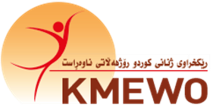Allocating £20 million for ESOL provision could be seen as a very positive step towards meeting a great need amongst many Black, Asian , Minority Ethnic and Refugee (BAMER) communities in the UK to learn English and to support their integration. However, limiting this money for use with “Muslim Women” only and justifying this by linking learning English to tackling extremism is discriminatory, unfair and misguided.
Providing ESOL and IT programmes that are appropriate, accessible, professional and free for everyone who lives and/or works in the UK is a necessity for our society and is not limited to the needs of “Muslim women” only. As a specialist Black and Minority Ethnic BME women’s organisation, KMEWO identified this essential need for Kurdish, Middle Eastern and North African women some eight years ago and since then it has been providing ESOL and Computer skills classes for over 1000 women from many different religious and ethnic backgrounds.
We have worked with groups of Muslim women, Ethiopian- Christian women and Kurdish-Turkish women (whose religious identity is not their main identity); amongst all these groups we found a large proportion of women who are not literate and have never had opportunities to learn English although being in the UK for many years. Their reasons for not learning English are not because of being “lazy, sloppy or unwilling“. Some face a range of barriers, challenges and commitments in their everyday lives including controlling partners, domestic abuse, motherhood, raising children and, last but not least, feeling helpless within prevailing dominant and imposed patriarchal values thinking that a woman’s job is to stay at home to raise the children and service her husband; values which are deeply rooted in most of today’s societies but are also enforced by certain interpretations of religious and cultural beliefs .
In regard to punishing women who come on spousal visas for not learning English after two and half years with threats of possible deportation, we at KMEWO would like to inform the Prime Minster that according to our experience with hundreds of women who have come to UK on spousal visas, many of them live in conditions almost close to “modern slavery”; their access to any basic needs from food and sanitation to health and education services are all the hands of their spouse. Control and domestic abuse are very common.
One KMEWO user, in response to the question about what made her remain in an abusive situation for four years, said, “ I was made to believe that if I open the entrance door and get out , I will be arrested straight away and send back to my country , I was a prisoner of my fears and misleading information”.
Another user said, “When I arrived here everything has changed, I was sexually abused, I had no food, no cloths, no money, I wasn’t allowed a phone or TV. Whenever I asked for anything I got beaten and reminded that I don’t get or have anything in this country, I have no rights and if I don’t like it, he could put me back on a plain back home”.
We question the Prime Minster; how could women who lives in conditions such as those described by KMEWO users, gain fair access to education and ESOL classes especially if it is the responsibility of their abusers to pay for their education?
We also ask whether punishing vulnerable women who have no access to free ESOL courses and might be facing all kind of domestic abuse and oppression will solve any issues at all.
In regard to linking “lack of English amongst Muslim women” to extremism and radicalisation, we at KMEWO believe that there are many factors that have contributed to the increase in radicalisation and extremism such as our UK foreign policies, institutional discrimination against BME and Muslim people , lack of free education and lack of employment opportunities for women and young people in particular, allowing non-regulated and private religious schools and doctrines to operate freely and advocate extreme religious views and not listening to the voices of women themselves to represent their communities. Women lacking English language skills might come at the very far end of this long list of factors; because this limits women’s access to information and make them more vulnerable to isolating experiences. Furthermore, the numbers and facts tell us that most of those who were radicalised and recruited to extremism are not isolated Muslim women who lack English; but those who were born and raised in the UK and fluent in English.
KMEWO believes that it is the policy of cultural-relativism that segregates communities from the wider society and from each other; it widens the gap between people’s different cultures and experiences. Women within all BME communities and especially the Muslim community have been left in isolation with no voice or representation; this has caused the isolation of many women from wider society pushing them back to accepting and living in extremely isolated situations. The policy and prevailing practice of seeking community representations from male community religious or political leaders rather than establishing equal representation by men and women, further isolates women and limits their opportunities to learn English and integrate in society.
We believe that women from many different BME and migrant communities have ESOL needs, and that these should be met by adequate government funding for ESOL and IT skills courses provided by professional adult education agencies and specialist and community organisations such as KMEWO with trained and qualified ESOL teachers as a part of a national programme to tackle illiteracy and improve access to wider society and integration – free for all those who need it regardless of their ethnicity or religion.
Increasing opportunities for ESOL and broader education will contribute increased knowledge, tolerance, understanding and celebration of our society’s diversity. Singling out a group will further marginalise them and divide our society.
KMEWO January 2016
Contact KMEWO:
Tel: 020 7263 1027 Mobile: 07748851125
Email: info@kmewo.com Website: www.kmewo.com
Twitter: @kmewo
